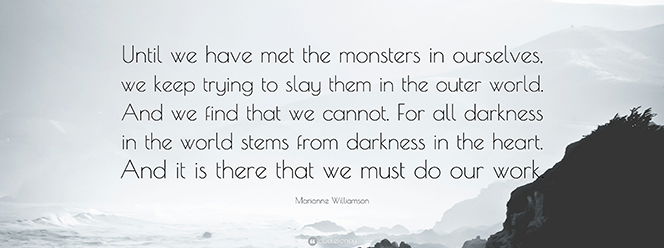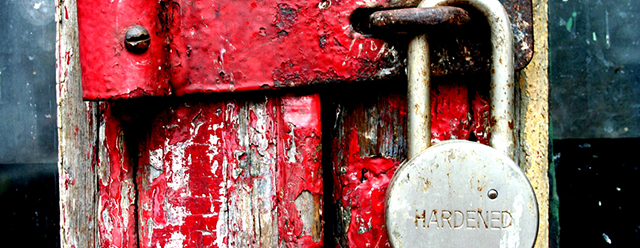
by Tara Joyce | Mar 10, 2017 | Cultural Creativity

We need to resolve our past, so we can expose our truth and move forward with our lives. We are drowning in our unresolved emotions. Unrecognized, they weigh us down. Depressed by them, we unknowingly hide and mask them.
So often we think our uncomfortable emotions away, doing everything we can not to feel the truth of them. Our rationalizations become what is real to us, and what we feel. What is not comfortable we do not acknowledge.
Disconnected from the truth of our emotions, we become unaware of what we truly value and love, and we find ourselves investing in things that are not right for us. Not acknowledging what we feel, we look to others to validate how we ‘should’ feel, using them to rationalize what we want to feel into ‘reality’.
We need to resolve our past and what is uncomfortable to us, so we can fully live our lives. To do this, we need to be vulnerable with ourselves and with others. This begins with accepting our fear of vulnerability, of intimacy, of our defenses being breached. It’s okay it feels more safe to feel in control and to remain hidden, it’s okay to believe then scary things won’t happen that we can’t handle.
While it is nice to feel we can make predictable our feelings and their magnitude, we simply cannot. At some point, we must surrender to our lack of control. We must hand over the tightly held and relinquish the guarded. Despite what we fear, our hearts will not break, we will not be in mortal danger. We can peer deeply in. We can feel our hurt and survive. We don’t need to protect ourselves from the truth of our feelings. What we need is to drop the mask and to reclaim our vulnerability.
When we don’t explore the emotions we find so uncomfortable, we create conditions that support others in avoiding theirs. Yet when we face our past and our truth, we make it easier for others to the same. There are always reasons why not to feel something, why not to be something, why not to do something. In helping our self take the risk of vulnerability, we release our self from our past and allow our self to move forward with our life. Being what we truly are, we support others in being the same.

by Tara Joyce | Dec 16, 2016 | Self/Business Growth

It’s a risk. I’m afraid. What will you think of me? What will I think of me? If I tell my hidden truth?
I feel so ashamed. How could I show you that? I can not take the chance of showing my true face to you.
The idea of bearing it is terrifying. In fact, it is more than that, it is life threatening. My neediness threatens my life. It terrifies me. I don’t want to feel it.
I must protect from it. I can not need love. I can not show how I need you. I must protect who I truly am behind my performance of independence.
Why do I feel the truth in my heart is so ugly? So shameful? Why do I feel I must cover it up?
If you knew what was in me, if I showed it to you, I’d be under threat. From me. From you. From the weight of my unbearably inconvenient truth.
Yet if I can break through my fear and allow myself to be vulnerable, what lies on the other side? Could the very thing I fear so much be the very thing to set me free?
But of course. My life is not threatened by my vulnerability. Not anymore, at least. I’m now an adult, in charge of my life. I have the ability to unlearn the faux-protection granted by aloofness and lack-of-care, and allow myself to re-access the wholeness within me. With courage, I have what it takes to face the truth in my heart. I can be me. Vulnerable. Truthful. Completely me.
photo credit: emily mucha

by Tara Joyce | Aug 5, 2016 | Self/Business Growth

Not wanting to feel it. Apathy towards the whole thing.
Why bother?
Isn’t it curious how we can love something. Someone. So much.
And feel so completely rejected and disappointed by them.
Two sides of a coin.
Love and pain.
How can I care so much, and yet desire to care so little?
Apathy. An easy option filled with complications.
Eventually, the truth will catch up with me.
Apathy. A dangerous act to perform.
It’s hard to keep up. It takes its toll.
Especially when masking the pain of rejection and disappointment.
How long can I pretend before I forget, and the mask falls from my face?
Can I trust myself? Am I that good of an actor?
What if I wore my rejection, my disappointment, without shame?
How might that change things? If you and I were to know the truth?
No reason to hide.
The love and pain, revealed.
Vulnerable. Exposed.
It is what it is. Equanimity. Towards my disappointment and my rejection.
I can learn to love them, as I do you. You’re intertwined, one. Ever present.
All of what I feel deserves to be felt.
Equally acceptable is my love and my pain.
photo credit: Karla Cantu

by Tara Joyce | Jun 1, 2016 | My Journey | What's On My Mind

So good at the act that you forget what’s true.
So good at pretending that the unreal becomes real.
What you feel is under your control.
You can simply act it away.
A mask of neutrality.
Leads you to believe you might actually feel it.
You can ignore your feelings.
You can act forever.
Yet at some point, the inevitable curtain comes down, and the performance ends.
You are left with you; and the feelings you’re pretending aren’t there.
If only for a moment.
The act is over.
What then?
Who are you when your truth has space to be?
The question, terrifying.
Its answer even more so.
It lies in love and the shape of it.
What does your love and care look like when there is no performance to mask it?
photo credit: Ania

by Tara Joyce | Nov 11, 2015 | Self/Business Growth

We, as humans, have a tendency to use our mind to negate our emotions. We use our mind as a tool to abandon how we feel.
I know, personally, I often use my mind to abandon my negative feelings, especially when they are directed at someone I love. In these moments, I’d rather pretend the feelings aren’t there… than explore why they are. The result of doing this, of locking up my sensitives in my logical mind, is that I disown my feelings and my emotional needs.
For some of us, we negate our feelings or emotional needs because we feel the expression of them is dangerous. Our emotions feel too vulnerable and the sharing of them feels to risky. Rightfully, risks are present when we share our most vulnerable self — but hiding our feelings from others is far more dangerous. For it leads us to mask our feelings, not only for others, but from our self. Rather than feel what we feel, we learn to abandon ourselves emotionally. We learn to negate what we feel and to lock it up in our mind. This lack of emotional self-awareness, and this mental overemphasis, further disconnects us from our self — and others.
We owe it to our emotional self to break our cycle of self-abandonment.
Emotional self-abandonment may feel safer — but it is no less painful than our own emotional truth — and it is all the more detrimental. For in not being present to our selves, we become slightly lost.
However, by acknowledging our logical desire to negate our feelings, we begin to break this cycle. Simply in seeing our abandonment, we cease our pattern of turning our back on our feelings. For recognizing our neglect enables us to be present to our emotional self once again, and within this awareness, we find we no longer need to leave any part of ourselves out again.
photo credit: gingher










